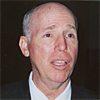
When the sexual abuse scandals broke upon the American scene early last year, many reacted with shock and dismay.

The horrific discoveries of scandals and cover-ups were inconceivable. Even now, the crisis is clearly not over.

Spreading from Boston, wildfires are raging in New York, New Jersey, Arizona, and California. Statutes are lifting statutes of limitations, unearthing ancient cases and provoking yet more court cases. The ensuing public debate is both painful and shocking. The laity feels both betrayal and anger.
Looking for Accountability
Many now look beyond the pain and want to find solutions to the crisis. They welcome the fact that once exposed, some abuser-priests are finally out of the ministry. Those who abuse their office now face embarrassing scrutiny and even removal.
The spotlight on the crisis forces even the most complacent Catholics to awaken to the fact that there are serious problems in the Church that need to be urgently resolved.
Solutions are proposed on all sides. Amid the cries for action, there are those who call for “openness,” “transparency,” “accountability,” and “lay involvement.”
There are demands for review boards, structural changes, and watchdog committees to put mechanisms in place to avoid yet more scandals and limit the power of those in authority.
Choosing a Response
The question is not whether but how to respond to the present crisis.
Precisely this problem prompted the American Society for the Defense of Tradition, Family and Property (TFP) to write I Have Weathered Other Storms: A Response to the Scandals and Democratic Reforms that Threaten the Catholic Church.
The 180-page work is not only a hard-hitting analysis of the scandals but a reply to the knee-jerk reactions and false solutions now appearing on the horizon.
It questions the agendas of self-appointed watchdog groups and individuals who claim to speak in the name of the faithful. It casts doubts on the mandate of those who would implement reforms that run contrary to the Divinely-established governing structures inside the Church.
Amid a climate of intense emotion, the TFP book asks: Who is watching the new watchdogs? Who is monitoring the self-styled new guardians of the Faith?
Changing the System
Many who cry out for change focus only on structures and not abuses. In fact, a consistent refrain surrounding the current sexual abuse scandals is that of systemic change.
While expressing real sympathy for abuse victims, many take advantage of the issue to call into question fundamental teachings, morals, and governing structures held by the Church over the ages.
The faithful who want to rid the Church of the sexual abuse problem are now being told they must “change the Church.”
Framing the Debate
The result is a sexual abuse debate framed by a Catholic left intent on implementing an agenda.
They are forthright in how they view the crisis: the problem is Church authority. The voice of the laity must be heard and the structures of power must be overthrown. The Church must be “declericalized.”
That is the message, for example of the group Call to Action (CTA). With all the ardor of a sixties protester, theologian James Carroll recently energized CTA faithful by demanding that clerical leaders “dismantle an autocratic structure that enabled priestly child abuse.” He called “the clerical caste a vestige of the medieval court,” that should be eliminated. “The structures of oppression” must be dismantled once and for all.1
Targeting Authority
A similar message is echoed by Voice of the Faithful (VOTF), a so-called mainstream Catholic lay group formed in Boston amid the scandals. Founder Dr. James Muller, who avowedly works for democratic structural change, says: “Pedophilia is only a symptom of a disease. The disease is absolute power.”2
At the VOTF convention in July 2002, speaker Fr. Thomas Doyle proclaimed that the sexual abuse scandals were the symptom of a much more pervasive malady: clericalism. To much applause, the cleric decried the notion that the clergy have a special mission to sanctify the laity and thus deserve privileges.3
Radical feminist nun Sr. Joan Chittister praised VOTF, claiming that targeting authority and aspiring “to give lay people a ‘voice’ in the ongoing development and direction of the church stands for the biggest issue of them all: It stands for declericalization. And declericalization is the foundation for the renewal of the church.”4
Following New Prophets
From amid the scandals, the bewildered faithful are also asked to listen to the voices of new “prophets.”
Susan Troy, national chair of VOTF’s Prayerful Voice, made the incredible affirmation that Boston’s new bishop must see the victim survivors as “the new prophets and martyrs of our Faith.”5 She fails to mention that many outspoken victims are avowedly homosexual and thus disagree with Church teachings on the matter. Others admit to being agnostics. Yet these individuals are equated to the Catholic martyrs and prophets of the Faith!
The TFP book points out that such use of these victims is but a mere application of tenets of liberation theology. According to this misguided ideology, the victim does not participate in the vices of the oppressive clerical system, so he is thus qualified to be the “redeemer.” When he “liberates himself, he liberates his oppressors by destroying the structures of oppression, the Church’s hierarchical structure.”6
All Must Be Questioned
A.W. Richard Sipe, a former Benedictine monk-commentator, goes one step further by claiming that the sexual abuse scandals set the stage for a new reformation. The situation represents a structural problem of the Church which is so destabilizing “because it goes to the fundamentals of the doctrine.”
Presuming to interpret the desires of the faithful, Mr. Sipe claims the “laity wants all these questions re-examined and rediscussed—from contraception, homosexuality, masturbation, sex before marriage to sex after divorce, even abortion.”7
Revolution, Not Reform
The sexual abuse scandals have introduced new watchdogs and “prophets” who arrogate to themselves the task of interpreting the voice of the Holy Spirit and changing Church structures. No one may question their competence.
 Learn All About the Prophecies of Our Lady of Good Success About Our Times
Learn All About the Prophecies of Our Lady of Good Success About Our Times
As if conceived without Original Sin, these new voices seek to set themselves up to redesign Church administration. The empowered laity now sit on review boards to oversee Church governance. Members need not be Catholic or even against abortion. Leon Panetta, for example, is a pro-abortion member of the National Review Board.
Thrice Victims
The TFP book points out that the crisis requires neither structural nor systemic change. The scandals were born from a crisis of the Faith and a consequent moral crisis. They are the sad products of the self-destruction of the Church mentioned by Paul VI.
True victims are worthy of compassion, but they are not victims of a system, as claimed by the new watchdogs.
Indeed, they were victims of priests who betrayed their vocations, not victims of the priesthood itself. They were victims of bishops who abused their office, not victims of the office of bishop itself.
Many now are the unwitting victims of a movement that is using their sad plight to effect change in the Church.
The Church Cannot Change
Throughout the Church’s history movements have arisen that questioned Her governing structures. The Church has always responded by affirming Her unchangeable authority.
“Not even the Pope has any right to change or alter what Christ, the Son of God, has incorporated as a necessary part of His Church,” writes Dr. George Agius about Church authority. “It exists by Divine charter. The form of government He gave it is its life. It is a fruit of the Redemption. To introduce another form is to change the Church itself.”8
What most Catholics want is not structural change. Rather they long for bishops who will assume their role as strong and caring pastors and for priests who will strive to be true and holy priests.
Filial Protest
Pressure groups, intent on changing the Church, disparage the present laity as being dispossessed, voiceless, and spineless followers. They insult lay Catholics by saying they follow an “ask-no-questions” tradition where they must “pay, pray, and obey.”
The TFP book points out that the history of the laity is one of dynamic and fruitful apostolate. The Church has always respected and fostered true freedom. Nothing truly good is off-limits to the laity provided the nature of the Church and Her sacramental character and powers of jurisdiction are respected.
In face of the scandals, the faithful laity must not only respectfully denounce evils but work to revitalize the Church.
They must also watch the new watchdogs, lest the flock be waylaid by wolves in sheep’s clothing.
Footnotes
- James Carrol, “Enhancing Democracy: the Key to Religious Reform,” http://www.cta-usa.org/reprint%2011-02/carroll.html.
- Miriam Hill, “Catholic Group in Boston Sows Seeds of Revolution,” The Philadelphia Inquirer, May 15, 2002.
- See tape 02VF2, Voice of the Faithful National Conference, July 2002.
- Joan Chittister, “Voice of Faithful goes after biggest issue of all: authority,” National Catholic Reporter, Jan. 31, 2003.
- Peggy Thorpe, ed, http://www.votf.org/vineyard/vineyard3/vineyard3.html.
- TFP Committee for American Issues, I Have Weathered Other Storms: A Response to the Scandals and Democratic Reforms that Threaten the Catholic Church (York, Penn.: Western Hemisphere Cultural Society, 2002), p. 42.
- Arthur Jones, Sexuality sets stage for church’s next reformation, expert predicts, National Catholic Reporter, Jan. 10, 2003.
- George Agius, Tradition and the Church (Boston: The Stratford Company, 1928), p. 23.

